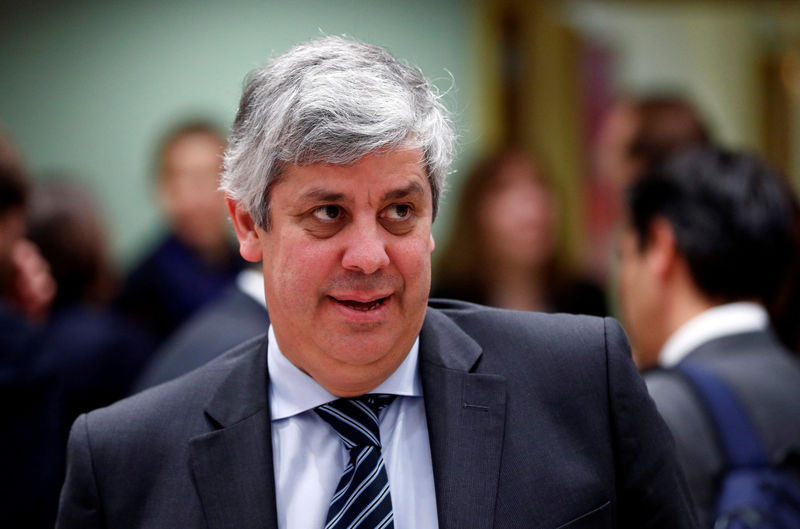By Jan Strupczewski
BRUSSELS (Reuters) - European Union leaders will urge finance ministers on Friday to keep working on deeper euro zone integration as flagship ideas such as a euro zone budget or a deposit guarantee scheme either lack key elements or have not progressed at all.
The chairman of euro zone finance ministers Mario Centeno will report what EU finance ministers have achieved over the six months since EU leaders asked them last December to work on creating a euro zone budget along with other reforms.
French President Emmanuel Macron told reporters on entering the summit that the ministers did not appear to have reached a "satisfactory situation".
The ministers were to have worked out how a budget for the 19 countries sharing the euro currency could be financed, what it should be used for and how it would be managed, with the final size to be determined by the leaders.
But progress has been limited because of widely differing views. France and several southern European countries want a large budget funded by dedicated taxes and able to stabilize economies hit by an unexpected shock.
The Netherlands and its northern European allies want a small budget funded only from the existing, wider EU budget and used for investment or to support structural reforms.
Centeno told summit chairman Donald Tusk in a letter that no consensus had been found on financing and that finance ministers would work further, based on guidance from the leaders.
"Technical work has continued on stabilization, on which there is no consensus," Centeno also wrote.
The ministers were also asked last December to prepare for the start of negotiations on a European deposit insurance system (EDIS).
But Germany and northern European allies are reluctant to commit to a joint scheme to insure euro zone deposits before banks in southern countries such as Italy, Greece or Portugal have substantially reduced their bad loans - a legacy of the sovereign debt crisis of 2010-2015.
An insurance scheme would make depositors across the euro zone feel safe and prevent bank runs in the event of a crisis. It would complete the EU's "banking union", which already has a single bank supervisor and a resolution authority.
But German resistance has so far blocked any progress even on a timetable for EDIS introduction.
"We recognize that further technical work will be needed on defining a transitional path to the steady state banking union," Centeno wrote in the letter.

He said a working group would continue discussing the EDIS idea and report back to ministers in December.